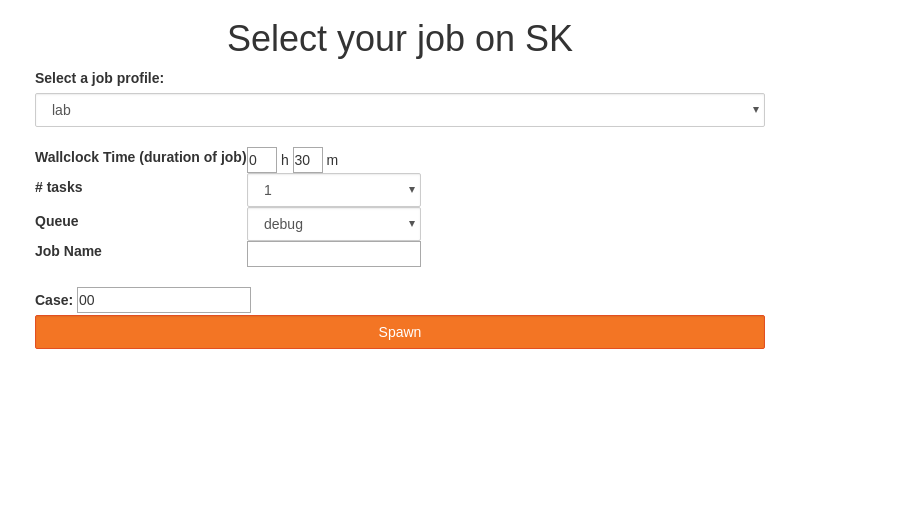Dynamic scripts¶
Here is described the template syntax we adopted to provide an automated user interface to a parametrized job script.
A very first example¶
Here is the file 00 - lab.template
---------------------------------------------------------------------------------------------------------------------------------
#!/bin/bash
#SBATCH --time=0:20:00
#SBATCH -n __nb_tasks;select;# tasks;1,2,3,4,8,16,32,64,128,512,1024__
#SBATCH --partition=__partition;select;Queue;debug,workq__
#SBATCH -J jupyterhub-singleuser
#SBATCH -o __JOB_DIR__/__job_name;input;Job Name;text;my_job__.%j.out
#SBATCH -e __JOB_DIR__/__job_name__.%j.err
#
echo RUNNING `which jupyter-labhub` on __nb_tasks__
jupyter-labhub --ip="0.0.0.0" --port=__NOTEBOOK_PORT__ --notebook-dir="~/NOTEBOOKS" --debug
----------------------------------------------------------------------------------------------------------------------------------
will show in the hub as

display could and will be improved of course…
See how
__nb_tasks;select;# tasks;1,2,3,4,8,16,32,64,128,512,1024__
became a select item on the web page? Once value selected and the button spawn hit, selected option are replaced in the job that is ppawned to shaheen. The first command makes the connection with the hub from the first node of the job:
jupyter-labhub --ip="0.0.0.0" --port=__NOTEBOOK_PORT__ --notebook-dir="~/NOTEBOOKS" --debug
with __NOTEBOOK_PORT__ also replaced with the current address of the hub and a unique port number per job handled by the hub.
General syntax¶
Web components supported so far¶
pre-defined environment variables¶
- JOB_DIR: directory where kslhub stores temporarily generated job scripts.